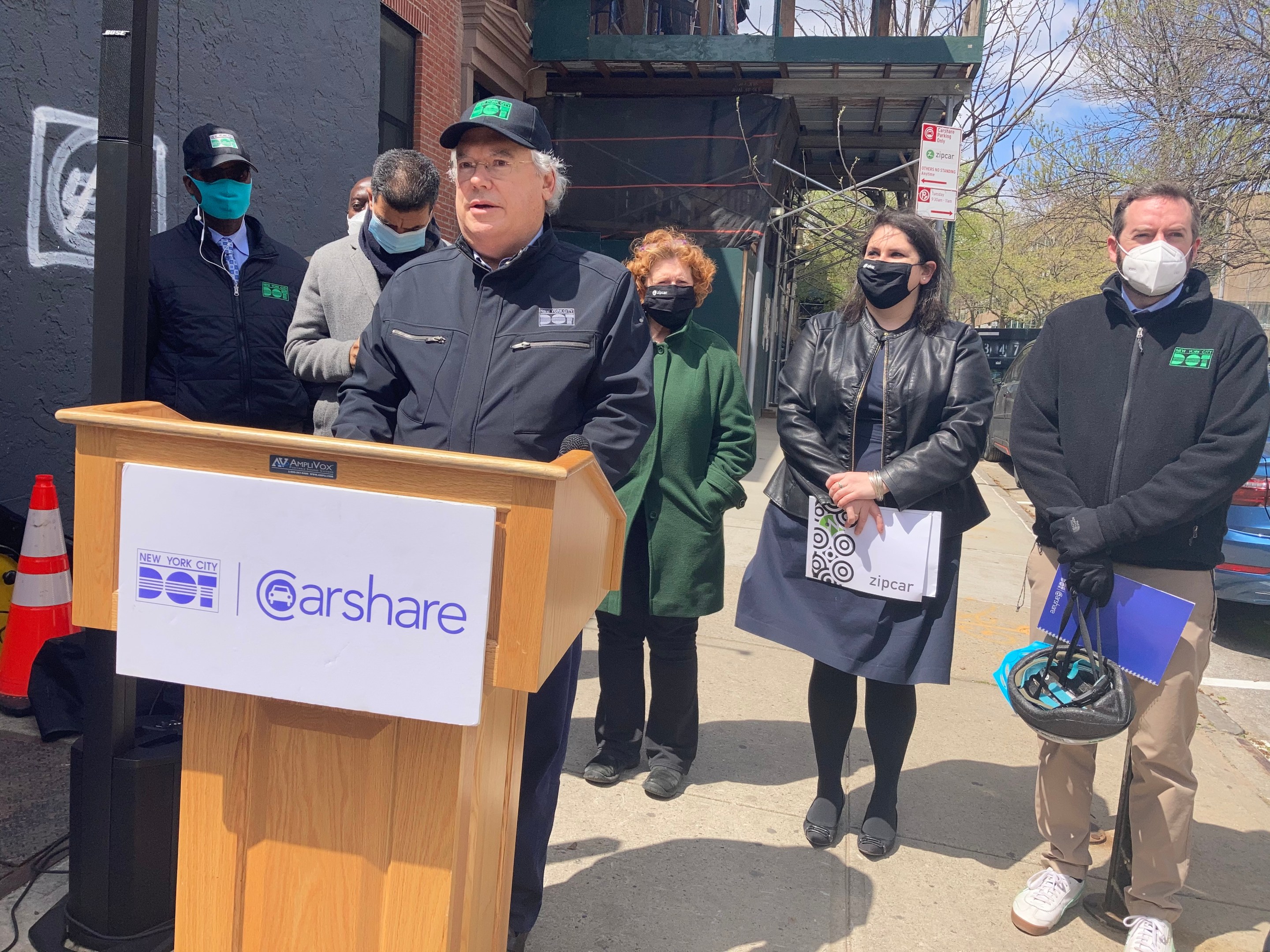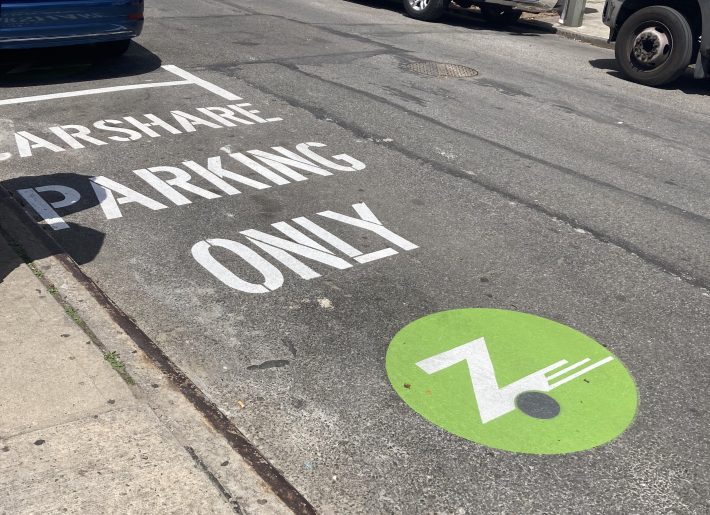They're Zip'n and zoomin'.
The city is expanding and making permanent a car-share pilot program to help break New York's car culture and its dependence on private car ownership — one of the biggest contributors to greenhouse gas emissions that help destroy the planet, Department of Transportation honchos announced on Earth Day.
DOT Commissioner Hank Gutman dubbed the three-year pilot program a success and said it would expand — not only to help cut back on emissions, but also to offer New Yorkers in transit-deserts, which are predominantly low-income neighborhoods and communities of color, alternatives to accessible, less costly, and greener transportation.
“Almost three years ago, this Administration predicted that New Yorkers would come to embrace the cleaner and greener alternative that more convenient car-share offers – and 150,000 rides later, the unqualified success of our pilot proved us right,” said Gutman, next to an on-street parking spots reserve for a Zipcar in Brooklyn. “Car-share can serve not only to protect our environment but also to serve our equity agenda and provide transportation alternatives in underserved communities.”
Before the pilot program that launched in 2018 with 285 parking spaces in just 14 zones, most of the on-street parking spaces and in municipal lots were located in wealthier neighborhoods. The goal of the program, which involved Boston-based Zipcar and Missouri-based Enterprise CarShare (a third company, Car2Go, folded during the pilot), was to expand into lower-income communities — especially where private car ownership is lower than in other parts of the city — and it succeeded in doing just that, said Gutman.
The number of Black and Latino users with memberships doubled to about 30 percent of the total number of car-share users during the pilot, including in Inwood, Washington Heights, Harlem, Red Hook, and Jamaica, according to the data.
"Clean transportation is integral to combating climate change,” said Julie Tighe, president of the New York League of Conservation Voters. “By encouraging more families to use car-shares rather than personal vehicles, this program is reducing vehicle miles traveled, decreasing pollution, improving air quality, and reducing congestion while prioritizing underserved communities."
Zipcar users took about 160,000 trips, averaging 24 trips per month per space. And the option of car-share led more people to either sell their own cars or not buy a new one — 1,140 participants in the program, or 7 percent, either sold their cars or opted not to purchase a new one, according to surveys conducted by Zipcar.
Another survey conducted this past December found that 38 percent of members had postponed purchasing a vehicle because of the option of Zipcar, and 39 percent said they would buy a vehicle if Zipcar did not exist, a spokeswoman for the company said.
The pilot also led to a drastic 38.7-million-mile reduction in annual vehicles miles traveled, according to DOT.
Car ownership did go up in the city — in part due to the COVID-19 crisis — but still fewer than half of city households own a car, according to city data, with wealthier households having a higher rate of car ownership.
Car-share helps bridge the gap in areas with insufficient access to transportation by making it an easier and more affordable option than owning a private car, advocates said.
"Today's announcement is welcome news for many New Yorkers living in and traveling to places that lack sufficient transit access," said Liam Blank, a spokesman for Tri-State Transportation Campaign. "We commend DOT for making this program permanent, particularly as ridesharing plays an increasingly important role in our city's fight against climate change and paralyzing traffic congestion."
DOT says it will expand the car-share program citywide, which will eventually grow to include hundreds of new spaces, said Gutman. (A reduction in free parking for private car ownership is also a deterrent to owning a car, studies show.)
The city will also continue to make the program accessible to low-income residents by ensuring that 20 percent of all spaces are located in low- and moderate-income neighborhoods with discounts for low-income users, and requiring participating companies to continue offering discounts to NYCHA residents and IDNYC cardholders, according to DOT.
"There is one particular area that I would like to continue working with the private sector to resolve related to the affordability of car-sharing,” said Manhattan Council Member Ydanis Rodriguez, chairman of the Transportation Committee. "We need to make sure that these vehicles are affordable to low-income New Yorkers, this cannot only be a privilege for the few."







